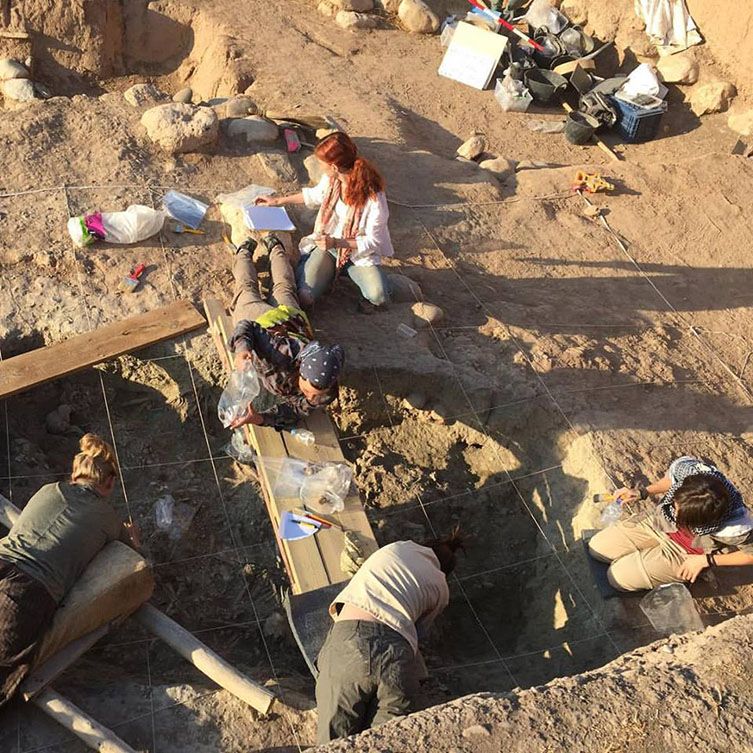
Archaeologists have uncovered evidence that at least 11 children and young people were killed as a result of ritualistic sacrifice between 3100 and 2800 B.C.E. Their research was published Wednesday in the journal Antiquity.
The bodies of people aged around 11 and up were arranged in bizarre positions in and around a large stone tomb. Eight young people lay at the feet of two children in the coffin-like structure. Further remains lay around the tomb surrounded by extravagant grave goods.
Some remains show evidence of stab wounds, but researchers aren't sure how all of the individuals lost their lives. One male had violent injuries to his hip and head, similar to wounds reconstructed from other Mesopotamian ritual sacrifices.
"It is unlikely that these children and young people were killed in a massacre or conflict," the London Natural History Museum's Brenna Hassett said in a statement. "The careful positioning of the bodies and the evidence of violent death suggest that these burials fit the same pattern of human sacrifice seen at other sites in the region."
Hassett led the research into Bronze Age cemetery Başur Höyük in Turkey. At the time, the area was part of the ancient region of Mesopotamia, which encompassed parts of today's Turkey, Iraq, Kuwait, Syria and Saudi Arabia.
Previous excavations of ancient Mesopotamia revealed hundreds of sacrificed bodies buried some 500 years later at the famous Royal Cemetery of Ur, Hassett said. "It has been suggested that practicing human sacrifice was one of the ways that complex civilizations like the one that rose up in Mesopotamia consolidated their power," she added. "This discovery moves the investigation 500 years earlier and more than 500 miles to the north."
The newly-discovered remains, Bassett explained, are notable for the ages of the victims, the number buried, and the value of the items found amongst the remains. "Women and children in Mesopotamia were occasionally buried with grave goods, but they were normally personal belongings.
"There are various pieces of evidence which suggest that these young people did not die accidentally or naturally—rather they were sacrificed."
Outside of human sacrifice, Başur Höyük previously yielded 5,000-year-old boardgame pieces back in 2013.
In other archaeology news, researchers recently discovered the remains of a limping man taken down by a fallen block in a last-ditch escape attempt from Ancient Pompeii during the 79 A.D. eruption of Versuvius. This is the latest find from new excavations which have revealed a horse and a child.
Uncommon Knowledge
Newsweek is committed to challenging conventional wisdom and finding connections in the search for common ground.
Newsweek is committed to challenging conventional wisdom and finding connections in the search for common ground.
About the writer
Katherine Hignett is a reporter based in London. She currently covers current affairs, health and science. Prior to joining Newsweek ... Read more
To read how Newsweek uses AI as a newsroom tool, Click here.








